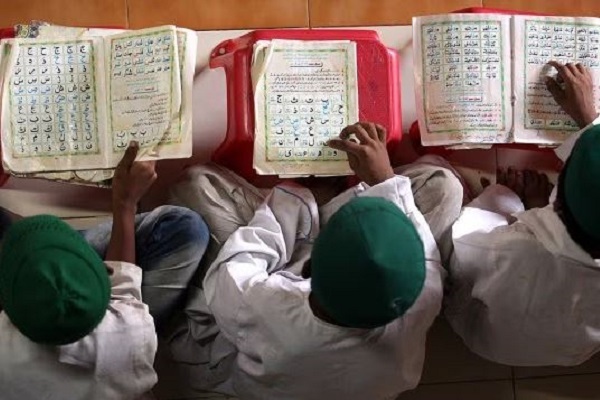Muslim Community Welcomes Supreme Court's Decision Upholding UP Madrasa Act

The Supreme Court on Tuesday upheld most provisions of the Uttar Pradesh Board of Madarsa Education Act, 2004, but struck down the Board’s authority to award advanced degrees, ruling it inconsistent with the University Grants Commission (UGC) Act of 1956.
A three-judge bench led by Chief Justice DY Chandrachud held that while the Act is constitutionally valid for standardizing madrasa education, provisions allowing the Board to confer Fazil and Kamil degrees overstep the state’s legislative authority.
These higher degrees fall under UGC jurisdiction, the Court explained, setting aside an earlier Allahabad High Court ruling that declared the Act unconstitutional.
Chief Justice Chandrachud stated that the Act’s core role—to ensure quality education in madrasas—aligns with the state's positive duty to prepare students for societal participation.
The Court further noted that the state has a legitimate interest in regulating educational standards, even in minority institutions, provided it respects religious freedoms.
Read More:
The ruling clarified that the Act does not violate the Constitution's secular principles, emphasizing that secularism challenges must demonstrate specific constitutional breaches. The Court also reiterated that minority institutions can be regulated on aspects like curriculum standards, teacher qualifications, and student welfare, to ensure education meets broader societal requirements.
The Court affirmed that while the state can oversee secular educational quality in madrasas, it cannot administer higher degree programs, reserving that authority for the UGC.
Muslim community embraces decision
The Supreme Court's decision broadly welcomed by leaders within the Muslim community. Maulana Yasoob Abbas, General Secretary of the All India Shia Personal Law Board, praised it as a "great decision," and expressed gratitude to the Court, saying, “I salute the Supreme Court for their decision.”
Maulana Khalid Rasheed Firangi, Imam of Lucknow Eidgah and member of the All India Muslim Personal Law Board, stated that the ruling brought joy to those associated with madrasas, adding, “How can an Act drafted by the UP Govt itself be unconstitutional?...Besides Islamic education, we impart modern education too at madrasas.”
Read More:
Advocate Anas Tanveer highlighted the Supreme Court's support for the Madrasa Act as constitutional, in contrast to the Allahabad High Court's prior verdict. He noted that although the madrasa board cannot confer higher degrees like Kamil and Fazil, "other degrees equivalent to 10th and 12th will be valid...This is a big relief.”
Samajwadi Party leader Ameeque Jamei also endorsed the decision, alleging that the government aims to restrict madrasa operations and create inequality in education. “People across the country are welcoming this decision of the Supreme Court... The backward, Dalits, and Muslims remain neglected," he remarked, advocating for full government funding for madrasas.
Source: Agencies



